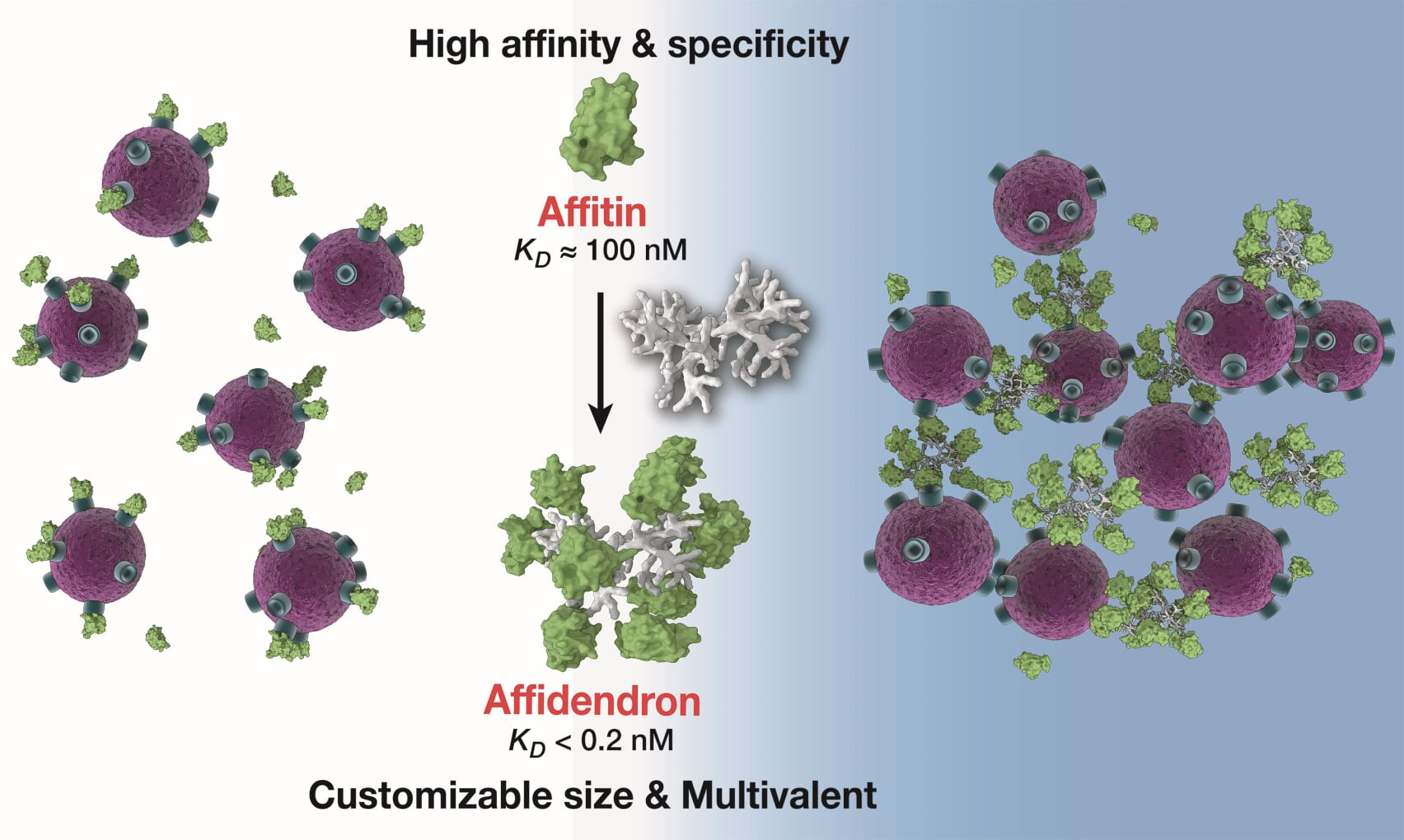Multivalency is a widely occurring natural phenomenon often exploited in nanotechnology to enhance biorecognition. We report the preparation and characterization of versatile, multivalent Affitin-dendrimer conjugates (Affidendrons) showcased by a set targeting Staphylococcus aureus (S. aureus), an opportunistic pathogen causing numerous hospital- and community-acquired infections. Affitins are small affinity proteins characterized by higher stability and lower cost-effective production than antibodies. The strategy presented provides a platform for the rational design of multivalent nanodevices that retaining the ability of Affitins to recognize their target with high specificity, achieve a largely enhanced affinity. Affidendrons with precisely designed size and valency have been exploited to modulate complex multicellular behaviors of S. aureus, such as agglutination and biofilm formation. Agglutination assays showed that Affidendrons rapidly cross-link S. aureus strains with high bacterial cell selectivity. Moreover, remarkably low concentrations of Affidendrons were able to effectively prevent biofilm formation. Overall, Affidendrons represent a promising platform for the rapid and selective pathogen identification, infection imaging, and theranostic applications.
Vukojicic P, Behar G, Tawara MH, Fernandez-Villamarin M, Pecorari F, Fernandez-Megia E, Mouratou B.
ACS Appl Mater Interfaces. 2019 Jun 19;11(24):21391-21398. doi: 10.1021/acsami.9b05702

